|
Books Should Be Free Loyal Books Free Public Domain Audiobooks & eBook Downloads |
|
|
Books Should Be Free Loyal Books Free Public Domain Audiobooks & eBook Downloads |
|
Top Authors |
|---|
|
Book type:
Sort by:
|
By: George-Günther Freiherr von Forstner (1882-1940) | |
|---|---|
 The Journal of Submarine Commander Von Forstner
The Journal of Submarine Commander Von Forstner
The Journal of Submarine Commander Von Forstner is a graphic account of WWI submarine warfare. Forstner was the commander of German U-boat U-28. His journal, first published 1916, gives a gritty picture of daily life inside a submarine and details several torpedo attacks on Allied shipping. The 1917 translation of Forstner’s journal into English was unquestionably intended to bolster the Allied war effort. In the foreword, the translator states: “Nothing at the present day has aroused such fear as this invisible enemy, nor has anything outraged the civilized world like the tragedies caused by the German submarines... | |
By: Isabella Valancy Crawford (1850-1887) | |
|---|---|
 Old Spookses' Pass, Malcolm's Katie, and other poems
Old Spookses' Pass, Malcolm's Katie, and other poems
| |
By: May Kellogg Sullivan | |
|---|---|
 A Woman Who Went to Alaska
A Woman Who Went to Alaska
Alaska has only been a state since 1959, and the breathtaking terrain remains mostly unspoiled and natural. In modern times, many of us have had the pleasure of visiting Alaska via a luxurious cruise ship, where we enjoyed gourmet meals, amazing entertainment, and a climate-controlled environment. It's easy to also book a land package that enables you to see more of the country by train.Imagine what it was like to visit the same wild, untamed countryside in 1899. Instead of boarding a sleek, stylish cruise ship, you travel for weeks on a steamer... | |
 The Trail of a Sourdough Life in Alaska
The Trail of a Sourdough Life in Alaska
| |
By: Bertrand Sinclair (1881-1972) | |
|---|---|
 The Hidden Places
The Hidden Places
Hollister, returning home from the war physically scarred but otherwise healthy and intact, finds life difficult among society, and so chooses to roam about a bit seeking a future for himself. He eventually leads himself to a remote area in British Columbia, which begins the tale of the next phase of his life; a life which becomes far richer in totality than he would have imagined in his old unwelcoming haunts. A life among the hidden places. | |
By: Kisari Mohan [Translator] Ganguli | |
|---|---|
 The Mahabharata of Krishna-Dwaipayana Vyasa, Volume 1 Books 1, 2 and 3
The Mahabharata of Krishna-Dwaipayana Vyasa, Volume 1 Books 1, 2 and 3
| |
By: Frank Williams (1887-?) | |
|---|---|
 The Harbor of Doubt
The Harbor of Doubt
Young Code Schofield had lost his schooner May Schofield in an Atlantic gale a few months ago, and now the townspeople on the small island of Grande Mignon off the coast of New Brunswick were beginning to talk suspiciously of the events surrounding that loss. Insurance investigators have been summoned to investigate, friends are alienating themselves from Code, and he finds himsef challenged by even those he's known and trusted his whole life. Does Code Schofield have anything to prove, and if so, to whom, and why? | |
 The Wilderness Trail
The Wilderness Trail
| |
By: Charles F. Dole | |
|---|---|
 The Coming People
The Coming People
Dole briefly sketches the history of life, and shows how it has a definite direction - toward the survival of the kind and gentle people. It's a challenging, and quite persuasive argument, and also a much needed one in light of the dog-eat-dog theories out there. Dole shows that in our evolving society, our traditional understanding of "survival of the fittest" needs to be updated. A book that was way ahead of its time, yet so suited to it. Some may argue that - since he was writing The Coming People before the first two world wars - that he was obviously wrong... | |
By: Gaius Julius Caesar | |
|---|---|
 Commentaries on the Gallic War
Commentaries on the Gallic War
Commentarii de Bello Gallico (English: Commentaries on the Gallic War) is Julius Caesar's firsthand account of the Gallic Wars, written as a third-person narrative. In it Caesar describes the battles and intrigues that took place in the nine years he spent fighting local armies in Gaul that opposed Roman domination.The work has been a mainstay in the teaching of Latin to schoolchildren, its simple, direct prose lending itself to that purpose. It begins with the frequently quoted phrase "Gallia est omnis divisa in partes tres", sometimes quoted as "Omnia Gallia in tres partes divisa est", meaning "All Gaul is divided into three parts". | |
By: Gerhart Hauptmann (1862-1946) | |
|---|---|
 The Dramatic Works of Gerhart Hauptmann Volume I
The Dramatic Works of Gerhart Hauptmann Volume I
| |
By: Harriet E. Wilson (1825-1900) | |
|---|---|
 Our Nig, or, Sketches from the Life of a Free Black, In A Two-Story White House
Our Nig, or, Sketches from the Life of a Free Black, In A Two-Story White House
Frado is a colored girl, living in the USA a few years before the Civil War. She is abandoned by her own white mother in the house of the Bellmont's- where she is treated badly. This is a sad book, but Frado's cheerfulness and dignity will make you love her until the end. (Introduction by Stav Nisser) | |
By: Erwin W. (Erwin William) Roessler (1880-) | |
|---|---|
 A First Spanish Reader
A First Spanish Reader
| |
By: C. F. (Charles Frederic) Hayes (1857-1942) | |
|---|---|
 English-Esperanto Dictionary
English-Esperanto Dictionary
| |
By: E. Gordon Browne (1871-1926) | |
|---|---|
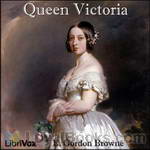 Queen Victoria
Queen Victoria
This book is about the life of Queen Victoria (1819 to 1901). All nine of her children married into the royal houses of Europe. She became the longest reigning monarch and more. This book is a fascinating read about the woman behind the British Empire. | |
By: Emerson Hough (1857-1923) | |
|---|---|
 The Singing Mouse Stories
The Singing Mouse Stories
The singing mouse tells tales of nature in songs. This book is for those who want to know how the mountains ate up the plains, what the waters said or where the city went. | |
 The Lady and the Pirate Being the Plain Tale of a Diligent Pirate and a Fair Captive
The Lady and the Pirate Being the Plain Tale of a Diligent Pirate and a Fair Captive
| |
 The Story of the Outlaw A Study of the Western Desperado
The Story of the Outlaw A Study of the Western Desperado
| |
 54-40 or Fight
54-40 or Fight
| |
 Covered Wagon
Covered Wagon
"Look at 'em come, Jesse! More and more! Must be forty or fifty families." This is an old-fashioned adventure tale set on the Oregon Trail, just before the California Gold Rush. It is the story of a wagon train bound for the west, and the conflict which arises due to of a love triangle. Indian fights, buffalo hunts, dangerous river crossings and other dangers of the trail add to a gripping and entertaining yarn. | |
 The Mississippi Bubble
The Mississippi Bubble
| |
 The Way of a Man
The Way of a Man
| |
 The Passing of the Frontier; a chronicle of the old West
The Passing of the Frontier; a chronicle of the old West
| |
 Heart's Desire
Heart's Desire
| |
 The Sagebrusher A Story of the West
The Sagebrusher A Story of the West
| |
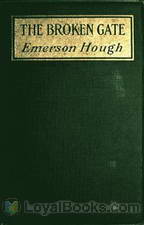 The Broken Gate A Novel
The Broken Gate A Novel
| |
 The Young Alaskans
The Young Alaskans
| |
 The Young Alaskans on the Missouri
The Young Alaskans on the Missouri
| |
 The Law of the Land
The Law of the Land
| |
 The Man Next Door
The Man Next Door
| |
 The Young Alaskans in the Rockies
The Young Alaskans in the Rockies
| |
 The Young Alaskans on the Trail
The Young Alaskans on the Trail
| |
 The Purchase Price
The Purchase Price
| |
 The Girl at the Halfway House A Story of the Plains
The Girl at the Halfway House A Story of the Plains
| |
 Young Alaskans in the Far North
Young Alaskans in the Far North
| |
By: Edward Granville Browne | |
|---|---|
 A year amongst the Persians; impressions as to the life, character, and thought
A year amongst the Persians; impressions as to the life, character, and thought
Edward Granville Browne (1862 – 1926), born in Stouts Hill, Uley, Gloucestershire, England, was a British orientalist who published numerous articles and books of academic value, mainly in the areas of history and literature. His works are respected for their scholarship, uniqueness, and style. He published in areas which few other Western scholars had explored to any sufficient degree. He used a language and style that showed high respect for everybody, even toward those he personally did not view in positive light... | |
By: W. Hamilton Gibson (1850-1896) | |
|---|---|
 Camp Life in the Woods and the Tricks of Trapping and Trap Making
Camp Life in the Woods and the Tricks of Trapping and Trap Making
| |
 My Studio Neighbors
My Studio Neighbors
| |
By: George Lovell Cary | |
|---|---|
 An Introduction to the Greek of the New Testament
An Introduction to the Greek of the New Testament
A collection of lessons (primarily in grammar) for New Testament Greek (also known as Koine) collected by a professor at Meadville Theological School of Pennsylvania. There are over 80 short lessons, each covering an aspect of verbs, nouns, etc. | |
By: William Godwin (1756-1836) | |
|---|---|
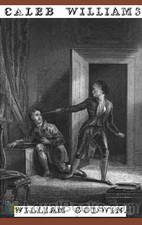 Caleb Williams or Things As They Are
Caleb Williams or Things As They Are
The novel describes the downfall of Ferdinando Falkland, a British squire, and his attempts to ruin and destroy the life of Caleb Williams, a poor but ambitious young man that Falkland hires as his personal secretary. Caleb accidentally discovers a terrible secret in his master’s past. Though Caleb promises to be bound to silence, Falkland, irrationally attached (in Godwin’s view) to ideas of social status and inborn virtue, cannot bear that his servant should possibly have power over him, and sets out to use various means–unfair trials, imprisonment, pursuit, to make sure that the information of which Caleb is the bearer will never be revealed... | |
 Lives of the Necromancers
Lives of the Necromancers
| |
 Thoughts on Man, His Nature, Productions and Discoveries
Thoughts on Man, His Nature, Productions and Discoveries
| |
 Four Early Pamphlets
Four Early Pamphlets
| |
 Italian Letters, Vols. I and II The History of the Count de St. Julian
Italian Letters, Vols. I and II The History of the Count de St. Julian
| |
 Imogen A Pastoral Romance
Imogen A Pastoral Romance
| |
By: M. François Guizot (1787-1874) | |
|---|---|
 Memoirs To Illustrate The History Of My Time Volume 1
Memoirs To Illustrate The History Of My Time Volume 1
| |
By: United States Federal Bureau of Investigation | |
|---|---|
 Unidentified Flying Objects
Unidentified Flying Objects
Through the U.S. Freedom of Information Act (FOIA) this series of communications has been de-classified and made public. Most names have been omitted, however much information of the sightings of UFOs in 1947 can be gleaned from these communications which were primarily between the FBI and other U.S. Government and military organizations. | |
By: Edward R. (Edward Richard) Shaw (1855-1903) | |
|---|---|
 Big People and Little People of Other Lands
Big People and Little People of Other Lands
| |
By: Rustichello of Pisa | |
|---|---|
 The Travels of Marco Polo — Volume 1
The Travels of Marco Polo — Volume 1
| |
By: Sarah Morgan Dawson (1842-1909) | |
|---|---|
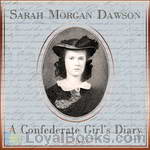 A Confederate Girl's Diary
A Confederate Girl's Diary
Sarah Morgan Dawson was a young woman of 20 living in Baton Rouge, Louisiana, when she began this diary. The American Civil War was raging. Though at first the conflict seemed far away, it would eventually be brought home to her in very personal terms. Her family's loyalties were divided. Sarah's father, though he disapproved of secession, declared for the South when Louisiana left the Union. Her eldest brother, who became the family patriarch when his father died in 1861, was for the Union, though he refused to take up arms against his fellow Southerners... | |
By: Eliza Cook (1818-1889) | |
|---|---|
 The Old Arm-Chair
The Old Arm-Chair
| |
By: William Worthington Fowler (1833-1881) | |
|---|---|
 Woman on the American Frontier
Woman on the American Frontier
Many books describe the role of men during American history. However, at the same time, women did much: comforted, fought, helped, raised children, and much more. This book is full of mini-biographies of women in many places, and many ages- each chapter telling about a different subject. | |
By: Alexander Maclaren (1826-1910) | |
|---|---|
 Expositions of Holy Scripture
Expositions of Holy Scripture
| |
 The Life of David As Reflected in His Psalms
The Life of David As Reflected in His Psalms
| |
 The Expositor's Bible: Colossians and Philemon
The Expositor's Bible: Colossians and Philemon
| |
By: Alfred de Musset (1810-1857) | |
|---|---|
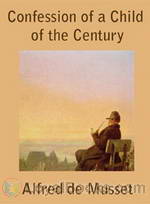 The Confession of a Child of the Century
The Confession of a Child of the Century
In this autobiographic novel, an aging man reflects on his past. We are witness to the relationships he has along the way, his mistakes, and finally- in the most unexpected and honorable way- the sudden developement of his belief in god. | |
By: James C. Philip (1873-1941) | |
|---|---|
 The Romance of Modern Chemistry
The Romance of Modern Chemistry
A fascinating look back at the state of the art of chemistry 100 years ago, this book by James C. Philip, PhD, an assistant professor of chemistry at The Imperial College of Science and Technology, Kensington, provides a "description in non-technical language of the diverse and wonderful way which chemical forces are at work, and their manifold application in modern life" in 1910. Professor Philip relates many of the key chemical discoveries of early academic researchers in the context of the practical uses to which these discoveries were applied in the early 20th century. | |
By: Mildred Duff (1860-1932) | |
|---|---|
 The Bible in Its Making - The Most Wonderful Book in the World
The Bible in Its Making - The Most Wonderful Book in the World
One great universal law runs through the realm of nature. Our Saviour gave it in a sentence: 'First the blade, then the ear, after that the full corn in the ear.' It is with the desire to show that the same law rules in another of God's creations — The Bible — that this little volume has been prepared. The Bible has as literally 'grown' as has an oak tree; and probably there is no more likeness between the Bible as we know it to-day and its earliest beginning, than we find between the mighty tree, and the acorn from which it sprang... | |
By: George Edward Moore | |
|---|---|
 Principia Ethica
Principia Ethica
George Edward Moore, usually known as G. E. Moore, (1873 – 1958) was a distinguished and influential English philosopher. He was, with Bertrand Russell, Ludwig Wittgenstein, and (before them) Gottlob Frege, one of the founders of the analytic tradition in philosophy. Principia Ethica is one of the standard texts of modern ethics. | |
By: Emory Adams Allen (1853-) | |
|---|---|
 The Prehistoric World; or, Vanished races
The Prehistoric World; or, Vanished races
| |
By: John Casper Branner | |
|---|---|
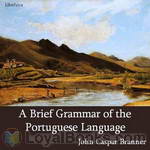 A Brief Grammar of the Portuguese Language
A Brief Grammar of the Portuguese Language
Dr. Branner was a recognized authority on the geology of South American republics, especially Brazil, having organized and headed the Stanford Expedition to Brazil in 1911, among others. In 1910 he published this "little book", as the author himself calls it, for the use of English-speaking students who needed a fast and practical way of learning Portuguese. Contrary to the belief of many back then, John C. Branner claims that Brazilian Portuguese isn't "badly spoken Portuguese", and, even though using examples from both Portuguese and Brazilian writers, seems to give more proeminence to Brazilian Portuguese. | |